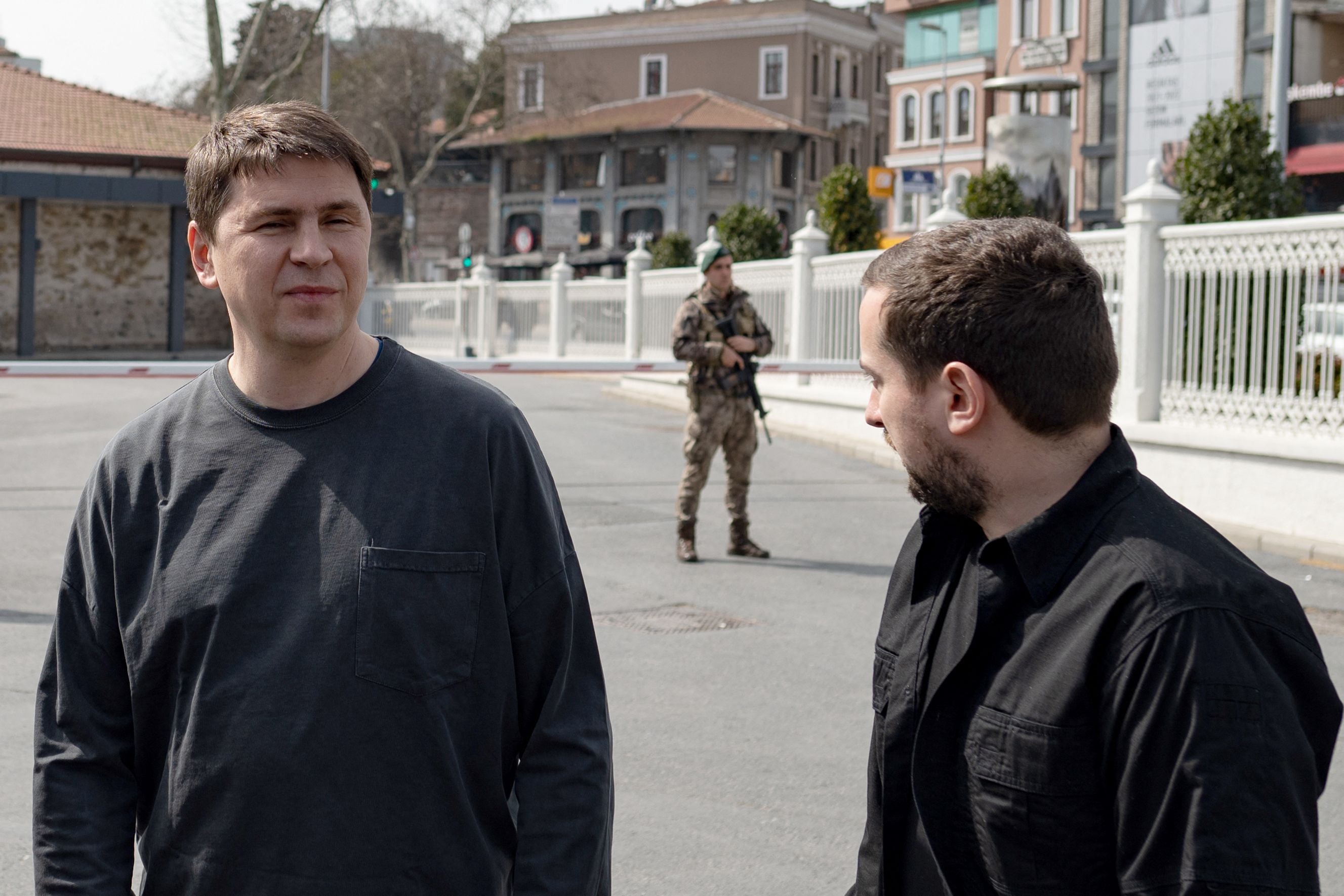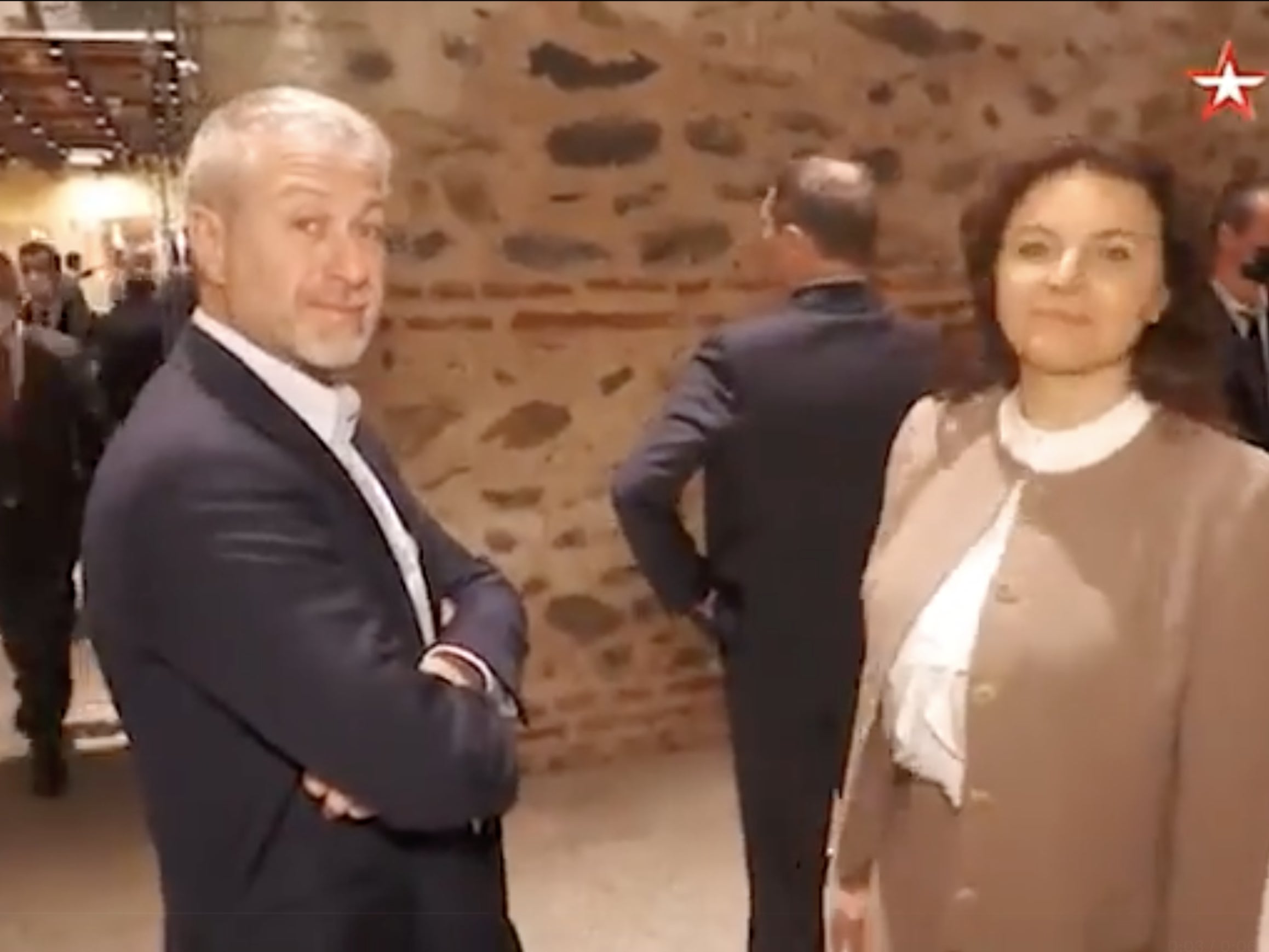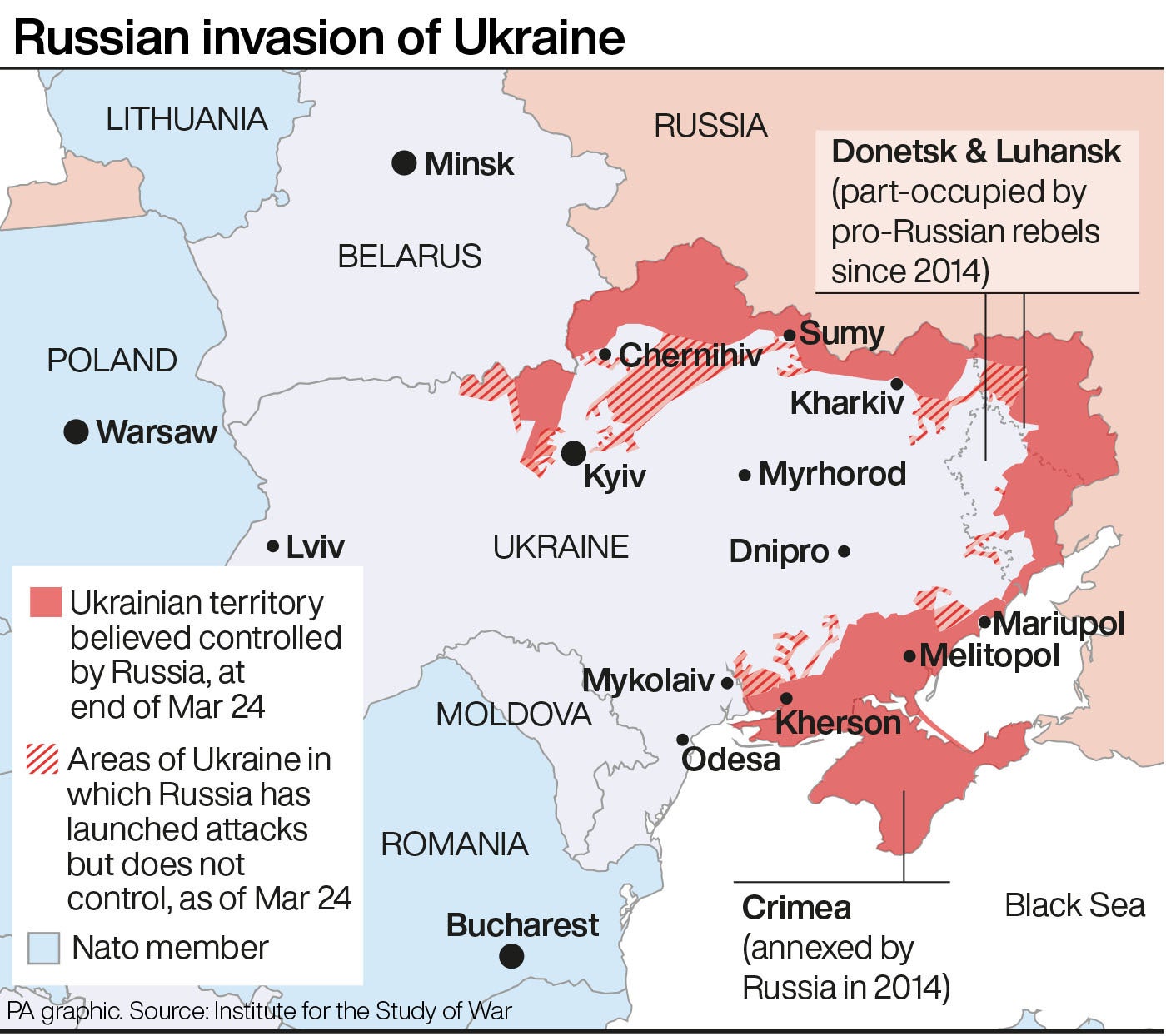Russia vows to reduce ‘military activity’ around Kyiv at peace talks
Moscow’s pledge has been met with scepticism and caution from powers such as the US and UK
Your support helps us to tell the story
From reproductive rights to climate change to Big Tech, The Independent is on the ground when the story is developing. Whether it's investigating the financials of Elon Musk's pro-Trump PAC or producing our latest documentary, 'The A Word', which shines a light on the American women fighting for reproductive rights, we know how important it is to parse out the facts from the messaging.
At such a critical moment in US history, we need reporters on the ground. Your donation allows us to keep sending journalists to speak to both sides of the story.
The Independent is trusted by Americans across the entire political spectrum. And unlike many other quality news outlets, we choose not to lock Americans out of our reporting and analysis with paywalls. We believe quality journalism should be available to everyone, paid for by those who can afford it.
Your support makes all the difference.Russia will scale back military operations around Kyiv and the northern Ukrainian city of Chernihiv in a bid to “increase mutual trust”, Moscow said at the conclusion of the first day of talks in Istanbul on Tuesday to end the month-long Russian war against Ukraine.
It is the first meaningful concession by the Kremlin since Vladimir Putin invaded Ukraine on 24 February, although it was met by scepticism and caution.
“In order to increase mutual trust and create the necessary conditions for further negotiations and achieving the ultimate goal of agreeing and signing [an] agreement, a decision was made to radically, by a large margin, reduce military activity in the Kyiv and Chernihiv directions,” Moscow’s deputy defence minister Alexander Fomin said.
Mr Putin’s hopes for a swift military victory have been thwarted by strong resistance, with Ukrainians recapturing territory even as civilians are trapped in besieged cities, and some analysts noted that Russia’s promise to reduce fighting mostly covered areas where it has been losing ground.
US secretary of state Antony Blinken suggested Mr Fomin’s statement could be an attempt to "deceive people and deflect attention", while a spokesman for Boris Johnson said that the government would judge Mr Putin “by his actions, not by his words”.
In negotiations, Ukraine said it is willing to remain neutral and give up any ambition to join Nato in exchange for security guarantees and the creation of an eight-nation council that would come to its aid if it were ever attacked again.
Ukrainian negotiators said the eight members of the board could include the US, UK, Turkey, Poland, Canada, and Israel, and that talks had already begun to seek their cooperation.
Kyiv’s proposals mentioned a 15-year consultation period on the future of the Crimean Peninsula, which was seized by Russia in 2014, that could come into force only in the event of a total ceasefire.
The fate of the southeastern Donbas region, which Moscow demands Kyiv cede to separatists, would be discussed by the countries’ respective leaders, but any peace deal would require a referendum in Ukraine, the negotiators said.
“International security guarantees need to be really activated,” Ukrainian negotiator Mikhail Podolyak said in a speech after the talks at the Dolmabahce palace compound in Istanbul. “This is the system upon which we’d like to build the future of Ukraine.”

Russia’s delegation said it would study and present the proposals to Mr Putin.
It remained unclear if the latest round of talks, originally scheduled to last two days, would continue on Wednesday or whether both delegations would return to their capitals for consultations.
Turkey’s foreign minister Mevlut Cavusoglu said the two sides had made unprecedented progress and that the discussions would be followed by a meeting between the Russian and Ukrainian foreign ministers. He also said a meeting between Mr Putin and Ukraine’s Volodymyr Zelensky was also “on the agenda” but did not give a timeframe.
By hosting the talks, Turkey hopes to boost its own diplomatic status, but also end a conflict which has driven up global energy and food prices and damaged the Turkish tourism industry.
“We believe that a just peace will have no losers, and a prolonged conflict is not in anyone’s interest,” Turkey’s president Recep Tayyip Erdogan told negotiators ahead of the talks, according to the state-run Anadolu news agency.
The two sides had a “historic responsibility” to stop the fighting, Mr Erdogan said.
Russian oligarch Roman Abramovich was pictured at the talks despite reports that he suffered symptoms from a poisoning attempt at an earlier round of negotiations.
Late on Monday, The Wall Street Journal and investigative news outlet Bellingcat cited unnamed sources claiming that Mr Abramovich and two Ukrainian peace negotiators had been poisoned and suffered from red eyes and peeling skin on their faces and hands earlier this month after a meeting in Kyiv.

The Kremlin and Ukrainian officials have dismissed the reports about the suspected poisoning as untrue.
The war has quickly become the most destructive and disruptive in Europe since the 1990s.
Ukraine, a former Soviet republic long under the dominion of Russian empires, has been drifting more and more into orbit of the EU and Nato. Russia launched the war with the apparent aim of taking control of its neighbour, a nation of more than 40 million, and turning it into a satellite state.
But the war went badly from the start. Russian troops met fierce Ukrainian military and political resistance. Western nations unified to impose crippling sanctions that have pummelled the rouble.
Few analysts had given the talks much chance of success. During the ongoing decade-long war in Syria, Russia and its allies frequently use peace talks and ceasefires in what critics described as distractions aimed at giving themselves diplomatic cover and time to regroup and reset military strategy.

Samuel Ramani, a Russia specialist at the Royal United Services Institute – a think tank – said Kremlin voices in recent days have not publicly signalled any concessions.
A Russian defence ministry spokesman said the “ringleaders” of the Kyiv government must be “tracked down and properly punished” while Kremlin spokesman Dmitry Peskov said Russia still aimed to “de-Nazify” Ukraine, an apparent reference to obliterating any Ukrainian national sentiment.
“My conclusion is that Russia is using these talks to show it’s acting in good faith,” Mr Ramani told The Independent. “They are trying to buy some time on the military front while they’re still telling their own audience they’re firmly committed to regime change.”
Still, recent signals suggest that the Russian offensive may be recalibrating its military aims to focus on Ukraine’s southeast, which abuts the Black Sea, raising the possibility that it is seeking an exit strategy from the war.
Meanwhile, four European countries on Tuesday announced that they had expelled Russian diplomats. In what appeared to be coordinated action, The Netherlands said it was ejecting 17 Russians and Belgium said it was removing 21 for alleged spying.
Separately, the Czech Republic also gave one Russian diplomat 72 hours to leave the country, and Ireland told four senior Russian officials to leave the country because of activities deemed not “in accordance with international standards of diplomatic behaviour”.




Join our commenting forum
Join thought-provoking conversations, follow other Independent readers and see their replies
Comments